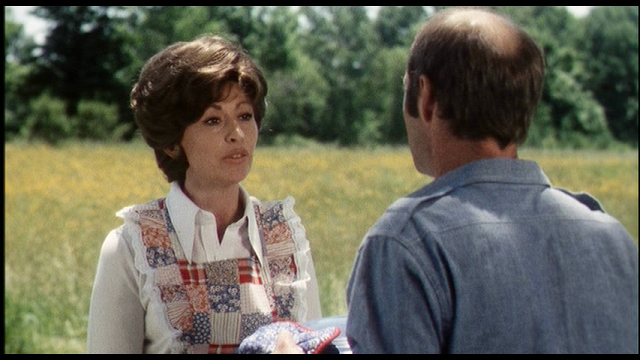THE PLAYGROUND (originally broadcast June 4, 1985, RAY BRADBURY THEATER)
Sometimes the most effective, relatable horror is that which
draws upon real life. In this episode of
Ray Bradbury Theater, William Shatner plays Charlie, the father of a young boy about to begin school, and because of this, starts having
PTSD-fueled flashbacks to his own grade school years.
Things were very rough for little Charlie, a victim of brutal
bullying, and his palpable anxiety for his son, Steve, is quite apparent. It doesn’t help that Steve (Keith Dutson), though
gregarious and without trepidation, seems to be naturally earmarked a
bully magnet.
The story begins with a brief flashback of Charlie as a boy,
being victimized by a group—then cuts to the adult Charlie in mid-trance,
playing with his young son while clearly preoccupied with a dread he should’ve
long ago recovered from.
A couple of things are touched upon, hinted at, as examples
of his inability to cope with the past trauma.
A conversation on the train-ride home with a colleague from
work indicates things have been strained for him professionally, and that he is
faltering amidst the dog-eat-dog competition.
Also, he lives with his sister, Carol (Kate Trotter), who
has a career and is getting married next month—and she is very frustrated and concerned not
only for young Steve’s progress, but for Charlie’s mental state.
She very pointedly illustrates this a few moments in. “He needs to learn how to play with other
boys his own age. He needs to learn how
to adapt, to get along.” She then
suggests he’ll otherwise turn out like Charlie, a stinging barb he lets go
unanswered.
Since Charlie’s wife is no longer around and no explanation
is provided, it’s easy to assume (considering what we know so far) that their
marriage was an unsuccessful one.
After much prodding by his sister to take
Steve to the nearby playground, Charlie relents, only to discover his worst
fears come to life upon arrival. The children seem to sense his nerves, his growing distress, and through his eyes they become fanged, growling, furry little fiends. Worse yet, his childhood bully, Ralph (Mirko Malish), is among them, sneering knowingly.
When he relates the sheer terror of his visit to Carol, that
the other children were bloodthirsty animals, she recoils in disgust,
demanding he spare her “the graphic details”.
And once again his long-ago bully, Ralph, is there taunting him from atop a large spiral slide. When they get home and Steve begs to go again tomorrow night, Charlie sets his mind to confronting his fears once and for all, and so agrees.
While much has been made of William Shatner's penchant for over-acting, especially during the latter half of his career, he is quite believably insecure and anguished throughout "The Playground".
It's best not to divulge much more, though I will note that this is one of the darker tales of the series—and of writer Ray Bradbury's oeuvre, for that matter.




























































